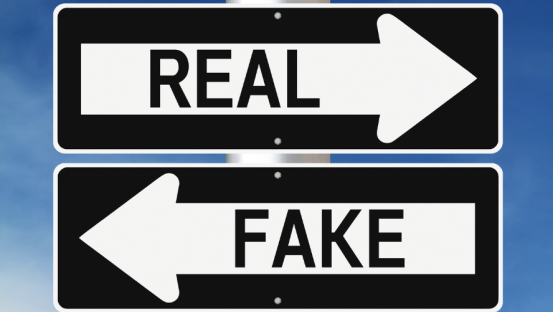12 Red flags: How to spot fake or fraudulent conferences

The number of predatory conferences, unfortunately, is increasing, and their scamming techniques are also getting more sophisticated. If you are new to the speaking circuit, there are a few things you should be aware of when it comes to spotting fake or fraudulent conferences.
Fake conferences seek to obtain money from speakers, making huge profits on speakers’ blind ambition to get up on stage and share their ideas.
From email correspondence, a conference may seem like a legitimate speaking opportunity, but if it turns out to be fake, you could end up wasting a lot of time and money.
Setting some time aside to do a bit of background research can help you sift the real events from the fake, ensuring that you don’t fall victim to these predators.
You should research all the events you plan to speak at. Here are some things to be on the lookout for:
-
Have you heard of the company or association organising the conference?
-
Do you know exactly where the venue is? Is it a place you have heard of, or previously attended a conference at?
-
Is it the first time that the conference is being held?
-
Have you or anyone you know in the industry attended this conference before?
-
If there are fees, is it crystal clear what they are for?
-
Does the conference have well-known sponsors?
-
Is the website clear? It should be easy to find dates, venue, attendance fees, other speakers, program details, and contact details.
While the above information should give you an indication of the legitimacy of the event, below is a list of red flags to be aware of when accepting to speak at a conference.
12 Red flags: How to spot fake or fraudulent conferences

1. The conference name seems off
You can’t judge a book by its cover, but you should undoubtedly judge a conference by its name. This should be your first indication that something might be off.
Too ambitious:
Predatory conferences often use words like “international” and “global” to attract would-be speakers. One good clue that it is not actually an international conference is if all the speakers and organizers are from the same country. If there is a disconnect between where the conference is being held, and where the organizers are coming from, this should set off alarm bells.
Too generic:
On the other side, if an organization or conference has an overly generic name, this could also be a sign that they are not a real conference. If it is called “The International Marketing Conference” and you have never heard of it before, you should probably investigate further.
Another conference with a very similar name already exists:
Do a Google search. Does another conference with a strikingly similar name show up? A common strategy for fake conferences is to try and gain some legitimacy by naming their event similarly to a more established and respected conference.
2. The scope of the conference is too broad
A legitimate conference should have a pretty well defined and pointed scope. When you read the scope of the conferences program, are they covering way too many diverse topics?
Is it clear how all the topics are connected and what the goal of the conference is?
Conferences that don’t specialize on a topic or are not clear on what their overarching goals are should be treated with caution.
Top tip: Be wary of conferences that use the word “interdisciplinary.”
In addition, if it is not clear why you, specifically, have been invited, and you receive a very generic invite, you may be getting scammed. They should have some clear reasons for wanting you to come and speak at the event, and if they don’t, do some research into who they are and what they are doing.
3. High registration fees and fishy money requests
Any time a conference asks you to pay them, you should be very wary.
High registration fees
While you may sometimes be asked to pay registration fees, you should always be cautious.
Are the fees on a par with other events of the same size? Often fake conferences will charge high registration fees to maximise their profits. Moreover, if the conference is charging speakers higher fees than attendees, there is something not right.
Visa or processing fees
Genuine events will never request a processing fee or visa fee. If you get a request for cash to cover this, it is not a legitimate event.
You, as the speaker, are most likely going to be responsible for sorting out your visa and making a payment through an embassy or consulate.
4. “All-expenses paid” is probably too good to be true
While some events will cover your travel and/or accommodation, and may even offer per diems, if you don’t know much about the organizers, or haven’t heard of the conference before, you should consider whether what they are offering is too good to be true.
This is especially true if it is being offered to all the speakers. In that case, you can almost guarantee that the event is fraudulent.
Additionally, if it is not being covered by them, but they required you to book a hotel or flight with a specific company, you should be wary. If you are paying for your own travel and accommodation, then you should have the freedom to choose a flight and hotel that meets your needs and budget, and you should not be required to book through a specific company or organization.
5. There is something strange about the website
Fraudulent event organizers will not take the time to develop a flawless website — they are cutting corners and maximising profits. So the conference website can often give you a good indication of how legitimate they are.
They don’t have a website.
A legitimate international event organizer will have a well-built website that is accessible at all times. If they do not, you need to find out why. Be very skeptical of any event that does not have its own web page.
The URL looks strange.
Generally, the URL should be the name of the event, with a standard “.[xyz]” domain. Alternatively, it might be a dedicated page on their already existent website. If the web address seems strange, be cautious.
Fake events will often use free hosting services because paying for hosting would only cut into their profits. Free hosting services usually keep their name in the URL, (for example: “http://international-marketing-conference.geocities.com”). This tells you that this is not a legitimate professional organization.
The language
Is the content on the website poorly written? Are there spelling and grammar mistakes? Beware of bad content! Poorly written content is a good indicator that they are not investing time and effort into creating the website, which is a good sign that something is amiss.
6. The contact details are not quite right
If you can’t find their contact details easily, there might be a problem. If they are legitimate, all their contact details should be clear and correct.
Address: Are they writing to you from a personal Yahoo, Hotmail, or Gmail account? Large-scale conference organizers will have their own email provider, so be cautious if they aren’t using their own domain.
Only one contact: are you only in touch with one person? Is it challenging to find the contact information for anyone else in the organization? You may be dealing with a fraudster. There should be contact details for the organizer, press, and information services readily available on the website.
Address
The organization should always have their full mailing address (warning: no P.O. boxes) and telephone number provided. This used to be a telltale sign for spotting fakes events, but scammers are getting slightly more sophisticated and will often add a fake address nowadays. Do a Google Maps search to make sure the address is real and seems appropriate. You can follow up by searching for information about the address itself.
Phone number
Is it clear how to reach the organizer by phone? If not, ask. If they come back with anything other than their phone number, you should be wary. You can also double check the country calling code for the phone number you’ve received. If it doesn’t add up, keep digging.
7. They ask for personal information
Any time an organization starts fishing for personal information, be aware that they might be fraudulent and trying to rip you off.
They should not ask you for
-
Personal information, such as your social security or insurance numbers
-
Passports, national cards, or drivers licenses
-
Banking information (they may need this to pay you, but if it is too early on, or seems unrelated or unexplained, be cautious.)
Some international events may need some of this information at some point, however, if you are not entirely confident about the reasoning, proceed with caution.
8. Big companies sponsoring a small, low-profile conference
Does there seem to be a disconnect between the size of the event and the level of the sponsors?
Small events are likely to be sponsored by smaller, local businesses. Large, international conferences will have large, international sponsors.
They should match. Do they have 20 high profile, large sponsors, for their 100 person event? In this case, they are probably making false claims about their sponsorship in order to attract unsuspecting speakers.
9. Lots of similar events
When you do a search, do multiple events with the same name but for different locations around the world pop up? If the conference is being held at various times, in multiple cities, but it isn’t clear that the events are tied together in any way, then proceed with extreme caution.
While there may be complementary, satellite versions of the conference happening in different cities, they should be clearly tied to the main event. If not, there is a problem.
10. Talk to someone in person
If you are in any way feeling strange about the conference, follow your intuition.
Write a list of precise questions about the audience, about the location, about the times, jot down the reasons you feel uneasy. Then ask the event organizer to set up a phone call or Skype meeting. If it is not possible to talk to a real person, you are most likely dealing with a fake conference.
If they give you a list of reasons why it is not possible to contact them and talk to them in person, that should be a significant red flag.
11. They are a known predatory conference
You will not be the only person they are trying to scam, and many savvy speakers will have reported the organization, meaning there are resources out there for identifying scammers.
We would suggest first googling the name of the conference and organizers with the word “scam” and seeing what comes up.
Secondly, use available resources. The following are a handful of sites dedicated to documenting fake or fraudulent conferences.
Do your research on the above lists. If their name comes up you know you’re dealing with a predatory conference. This being said, do not assume a conference to be genuine if it does not show up in a list. If you have an intuition that something is off, keep digging.
12. Ask around
You are not alone! One of the easiest ways to trap and scam a new speaker is when they are alone.
If you are not sure about the legitimacy of a conference, start asking around. Ask other speakers in your network. Get on to Facebook or Twitter and see what is being said about the conference and the organizer.
If you don’t know whom to ask, you can always jump in on our LinkedIn Group “Need a Speaker / Be a Speaker”
If you are still uncertain, please contact us, and we will try to help.
At SpeakerHub, we also do our best to keep our speakers protected from scammers, and systematically go through our events board each week to make sure that no known predators are using our service.
To summarize, as a speaker, you need to be on your toes and on the lookout for scammers. If you have any questions or are uncertain about a conference you’ve been invited to speak at, make sure you do your research.






